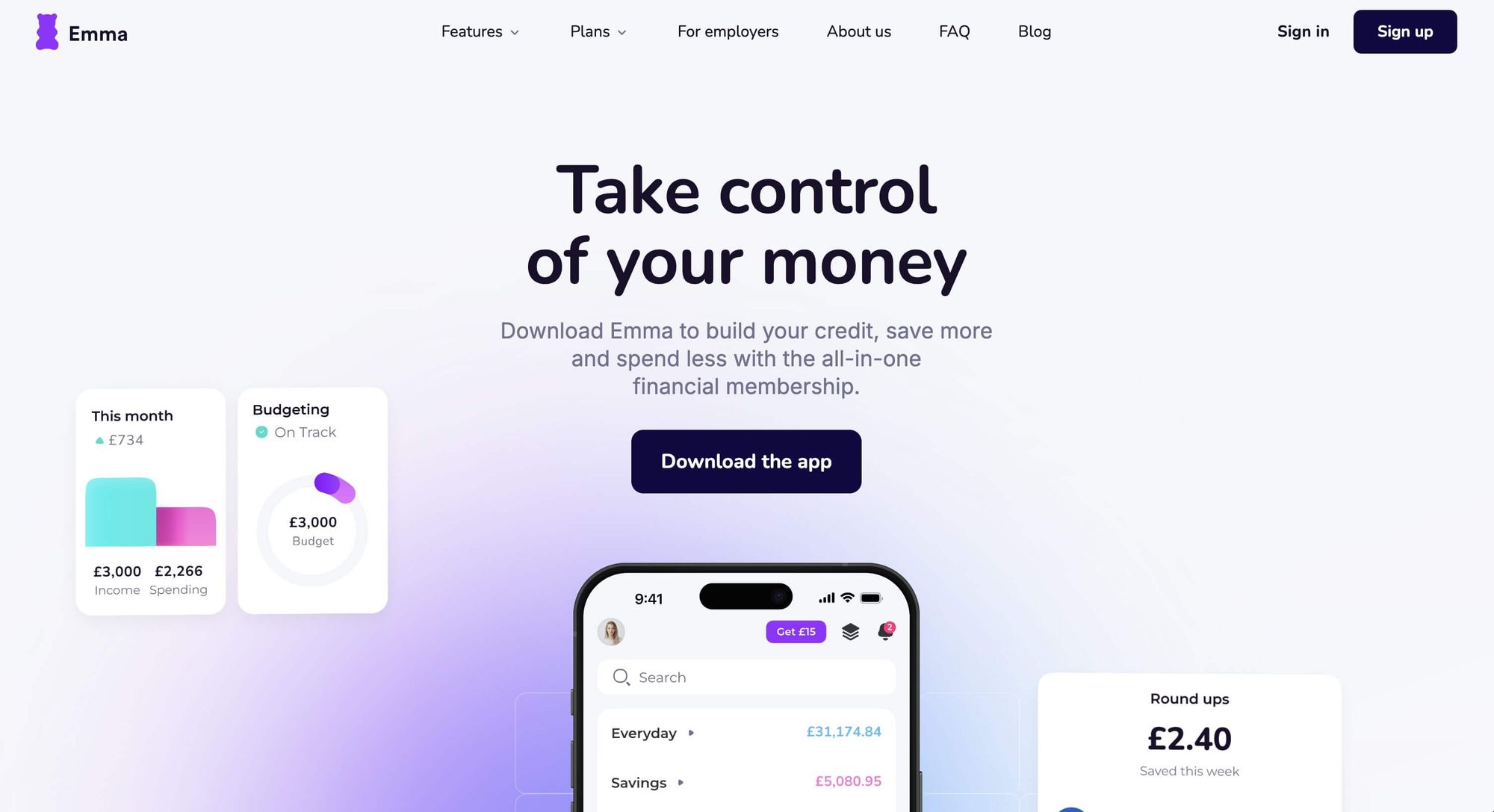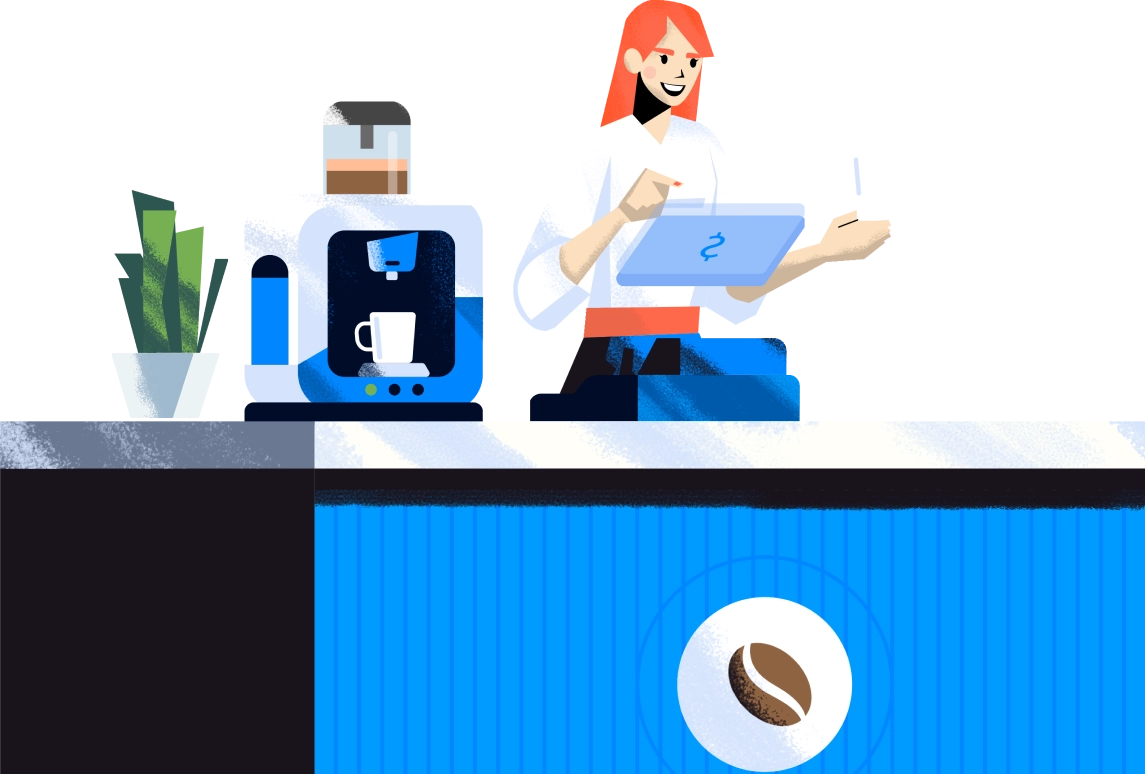Customer support doesn’t stop when your shift ends.
Global SaaS companies receive messages at 3 a.m., bugs appear while you sleep, customers hit API rate limits, and inboxes explode by morning.
For small teams, this cycle feels endless, yet most of it can be prevented.
Modern AI support tools can take the night shift, clearing repetitive tickets while you rest.
This isn’t about replacing humans; it’s about giving your team superpowers — freeing them for complex issues while AI tackles the chaos.
Spoiler: You’ll save hours, boost CSAT, and sleep better knowing users get instant support. No burnout, no bloated costs. Just smarter scaling.
Why your SaaS support experience is overflowing by morning
Morning chaos starts with a flood of unresolved tickets.
Imagine opening your laptop to 200+ unanswered queries from EU users frustrated by a payment bug at 2am and no APAC team that can reply or solve the inquiry.
Your US-based support team slept through these critical moments, and now you're playing catch-up before your day starts.
Global SaaS growth creates a 24/7 support paradox.
Dev teams in California build tools used by Berlin startups and Jakarta freelancers, but your support system only "wakes up" at 9am PST.
This mismatch isn't just inconvenient; it's business-critical.
80% of churn stems from poor service quality, and a delayed response to a midnight API outage feels like abandonment from the customer's perspective. (source)
Traditional fixes like offshore teams or "chatbot-first" solutions fail SaaS companies.

They're either too complex or too rigid (rule-based bots creating more confusion).
The real question isn't "how do we offer 24/7 support?" but "how do we maintain human-quality support overnight?".
Modern AI handles 70-85% of routine questions like payment errors or configuration issues via context-aware replies trained on multiple data sources, while escalating complex cases for morning review.
This approach reduces response time by 60% and lets agents focus on critical issues.
The answer lies in a Smart AI Chatbot as your strategic support night shift.
Let's explore how this approach maintains customer trust through smart automation.
The hidden costs of a human-based 24/7 support model
The challenge of hiring and retention
Most agents don’t want to work while their friends sleep, so you end up hiring people who quit within months. Instead of fixing response time, you start a revolving door.
The real problem isn’t coverage, it’s the model. Hire people that live in the designated timezone so they go through the same working hours as your customers.
The financial and operational cost of human customer support
Even a modest U.S.-based 24/7 human support team runs into US $300-450k/year in direct salary/benefits for five fully-loaded agents.
When you add night‐shift premiums, supervisor overhead, tools (US $1.2k-3.6k/agent/year) and the hidden churn cost of 30-45% annual turnover (each replacement costing US $10-20k+), the real budget drifts toward US $500k-750k/year.
For a growing SaaS company, that scale can quickly become untenable.
AI chatbot's $3500 annual cost reveals the gap:
| Feature | Traditional Human Support | AI-Powered Support |
|---|---|---|
| Availability | Limited by shifts, prone to absence | 24/7/365, instant and continuous |
| Cost | High (salaries, benefits, overhead) | Low and predictable (subscription fee) |
| Scalability | Difficult and slow (hiring process) | Instant and elastic (handles volume spikes) |
| Consistency | Varies by agent and fatigue | 100% consistent via knowledge base |
| First Response Time (FRT) | Minutes to hours | Instant |
| Data Collection | Manual notes, error-prone | Automated, structured context for handoff |
For SaaS C-Levels juggling global time zones, the choice isn’t between “good” and “perfect”—it’s high costs versus growth you can scale.
>>> Download the AI KPI Cheatsheet for tracking your AI chatbot ROI in your company
Meet your new night shift: how AI provides continuous support
Your first line of defense, 24/7
Imagine waking up to an empty inbox. No backlog from Tokyo customers or EU morning panic. AI handles routine inquiries instantly: password resets, billing confirmations, onboarding steps, ongoing bugs follow-up, using all the data sources you connected to your AI Chatbot.
Real SaaS teams using Crisp resolve 70-85% of level 1 tickets automatically, dramatically preventing long resolution times without extra hires; while increasing reviews on the app store.
More than an AI bot, a strategic partner
Modern AI isn't scripted chatbots. They're context-aware teammates trained on your company's knowledge.
When a developer asks support teams, "Why is the webhook failing after the OAuth update?".
NLP engine deciphers technical context, checks internal docs, and provides troubleshooting steps with version-specific runbooks, not generic messages.
Human control stays central. AI drafts responses for approval or handles low-risk work. Complex tickets get summarized: "User encountering error 429 — check rate limits in documentation."
For growing SaaS teams, this creates a virtuous loop: every interaction trains the AI, agents spend less time firefighting, and more time designing better experiences, making support smarter and customers happier worldwide.
The future isn't about night shifts. It's about AI that works tirelessly while your team focus on what matters, then amplifying human expertise when it matters most.
With AI handling most repetitive tasks, agents focus on edge cases requiring human nuance, turning support into a growth lever.
How a SaaS fintech turned AI into real ROI with Crisp
B2C support teams today face rising workloads: more channels, more conversations, and fewer people to handle them. Emma App decided to fight back, not with more hires, but with an AI-powered deflection strategy that paid off from day one.
The challenge: A small team, a growing user base, and no overnight support.

Emma is a fast-growing SaaS platform helping consumers manage their finance across the UK, US, and Canada.
With only five people in the support team, every weekend felt like a storm waiting to hit on the following monday. Either in terms of mental overload, or bad reviews on app stores.
“We wanted to serve users 24/7… but we were only five people.”
— Geoffrey Safar, Head of Operations at Emma
Every Monday started with:
- A backlog of unresolved tickets
- Poor App Store reviews from unanswered weekend messages
- A team on the edge of burnout
Something had to change!
The solution: Implementing Crisp AI Chatbot in their mobile app and website
Emma deployed the Crisp AI Chatbot, training the AI onto:
- Helpdesk and FAQ content
- Internal workflows for payment disputes
- Custom knowledge base and automation rules
Thanks to Crisp Mobile SDKs, they were able to automate conversation either on the mobile app and on the web version of the finance app for consumers.
Resulting in Crisp AI now handling :
- All weekend and overnight conversations automatically.
- Detecting customer intent and routing urgent issues.
- Resolves payment disputes without agent intervention.
The results: From overwhelmed backlog to balanced customer support
- ⏱ 3× faster resolution time on average
- 💬 100% of conversations handled over the weekend
- 📈 127% increase in conversation volume (from 3,500 → 7,200 per month), with zero new hires.
- 💸 Thousands saved each month through automated dispute workflows.
- 😌 No more Monday overload for the support team.
“It’s not about replacing support. It’s about keeping customers cared for — even when no one’s online.”
— Geoffrey Safar, Head of Operations at Emma
The seamless handoff: from AI resolution to human expertise
For SaaS teams overwhelmed by cross-timezone support tickets, the AI-human partnership is a strategic division: AI handles volume, humans tackle complexity.
This balance cuts first response time while maintaining quality, especially when EU or APAC users send midnight messages.
Teams report 300-400% ROI in their first year, with AI resolving 70-85% of level-one tickets.
The AI-to-human handoff workflow in action:
- Instant triage: AI Agents detects complexity using NLP and sentiment analysis, flagging urgency keywords like “payment blocked” or “downtime.”
- Context gathering: Asks clarifying questions (e.g., “Exported in CSV?”) and pulls past data to pre-fill forms, avoiding redundant user input.
- Intelligent summarization: Creates a snapshot: user ID, error code, steps taken, and screenshots. Tags urgency and links to related tickets, including solutions from past resolutions.
- Seamless handoff: Routes the ticket to the finance team with urgency tags. If the team is offline, the AI drafts a response: “A specialist will resolve this within 4 hours.”
This workflow eliminates “chaos” and fragmented data. AI does the prep work, letting humans focus on solutions. For global teams, the model translates queries—agents see responses in the customer’s language.
The result? Agents save 10+ hours weekly, and SaaS teams scale without bloated tools.
All while maintaining the control and simplicity modern SaaS builders crave.
The tangible ROI of an AI-powered overnight service
First, they helped me find product-market fit.
— Marc Lou (@marc_louvion) November 8, 2025
Then, they sent me cool t-shirts 100% cotton
You guys are too kind @crisp_im @valeriansaliou 😭
*not sponsored post, just a fan pic.twitter.com/1xxJSxPGA2
Drastic cost reduction and operational gains
Running human night shifts burns budgets fast: salaries, supervision, and turnover compound quickly.
Replacing that with an AI-powered overnight layer turns fixed labor cost into scalable infrastructure.
Emma App, for example, saw payment disputes vanish entirely once their overnight customer support chatbot began handling transaction queries, proving that automation can protect revenue and sleep schedules.
A measurable boost in customer satisfaction
When EU users face login failures at 2am UTC, every unanswered ticket risks churn. An AI layer ensures immediate triage and guided resolutions, even when your human team is offline.
A leading SaaS Fintech in Indonesia spotted a direct correlations between first response time and reviews left on app stores.
Instead of piling up overnight tickets, customers get acknowledgment, direction, and, in many cases, a fix. Keeping satisfaction high and reducing morning backlog spikes.
Empowering your team to focus on what matters
Picture morning standups where agents aren’t bogged down by yesterday’s backlog. AI handles repetitive tickets while summarizing complex threads with context intact. By automating password resets and chargeback queries, agents tackle higher-impact work like troubleshooting technical bugs or refining renewal processes.
>>> Download the AI KPI Cheatsheet for tracking your AI ROI in your company
Building your future-proof support system starts tonight
AI is already transforming customer support, but the next revolution isn’t about smarter answers, it’s about smarter actions. The future belongs to support systems that don’t just respond but resolve. That shift is powered by Model Context Protocols (MCPs), the new backbone connecting AI agents directly to your SaaS back-office in a safe, auditable way.
Customer support doesn’t need more bots, it needs better systems
As a “night shift,” it handles routine tickets, triages complex cases, and keeps your global support line active while your team rests. Hybrid human–AI setups already deliver 60% faster first responses and better CSAT scores, proving automation scales quality when properly designed. The real gain isn’t just cost reduction, it’s resilience.
AI has mastered understanding. The next frontier is execution
MCPs are the infrastructure that lets AI move from conversation into action.
They connect your support layer with your SaaS back-office tools (billing, CRM, analytics, etc.), so the AI can safely execute verified tasks: update payment details, pause a subscription, refresh API keys, or trigger a webhook. All within secured, controlled, auditable rules.
For SaaS companies, MCPs are the new gold standard for secure, fast interoperable customer support:
🧩 Real-time execution: No more “please contact billing.” The AI interacts directly with verified systems.
🔐 Verified actions: Before performing any change, the AI triggers a secure email or SSO validation flow.
🧠 Context continuity: MCPs keep every data exchange in context, so human agents see what was done and why.
Overnight support becomes more than triage: it becomes autonomous maintenance. Imagine an AI that not only answers refund requests but executes them safely, logs the action, and updates the CRM, all before your first coffee.
Why MCPs are a must-have for overnight SaaS support
The future won’t be about who automates more — it will be about who automates safely and qualitatively.
Without MCPs, AI agents remain siloed from the systems that hold customer truth, meaning they can only talk, not act.
With MCPs, they become trusted operational agents that deliver real, measurable outcomes overnight:
- closed tickets,
- updated records,
- satisfied users.
SaaS companies that integrate MCP-ready for their customer support today will gain:
- Faster iteration cycles: AI learns from every verified action, improving playbooks autonomously.
- Lower regulatory risk: Actions are traceable, permissions granular, and audits transparent.
- Deeper product adoption: Customers experience real-time resolution, not delayed promises.
FAQ about SaaS support strategies
What is the meaning of 24/7 customer support for a SaaS?
For a SaaS company, 24/7 customer support isn’t just about being awake at all hours, it’s about ensuring service continuity across time zones. Every customer, whether in Paris, Singapore, or San Francisco, expects instant resolution when their workflow breaks.
Traditionally, this meant hiring night-shift agents or outsourcing overseas, trading quality for coverage. But modern support isn’t measured by headcount; it’s measured by responsiveness, reliability, consistency and perceived value.

AI support chatbots now fills that operational gap. It acts as your always-on teammate : handling routine questions, triaging complex cases, and escalating intelligently while keeping context intact. Overnight, it clears queues, gathers data, and preps threads so your team starts fresh, not firefighting.
24/7 multichannel support doesn’t mean more people online — it means no customer left waiting. That’s the new standard for global SaaS businesses operating in real time.
How do you scale support without scaling costs like entry-level salaries?
Hiring overnight support reps is one of the most expensive ways to scale. Covering three shifts a day typically means maintaining 7–10 agents for true 24/7 coverage — a $400K–$700K yearly commitment once salaries, benefits, and night premiums are factored in. Turnover and retraining drive that cost even higher.
AI redefines that model. Instead of paying for idle night coverage, you run a predictable monthly system that resolves 70–85% of routine tickets autonomously while keeping humans focused on high-value cases.
The result: per-ticket costs drop by 40–60%, CSAT remains above 95%, and your support spend starts compounding into revenue growth, upsells and lower churn rates.
Can overnight AI-powered automation deliver the same impact as hiring a remote team?
AI, especially when powered by Model Context Protocols (MCPs), changes that dynamic entirely.
Instead of just answering messages, your AI agent becomes an active operator inside your SaaS stack, verifying user identities, checking subscription data, processing requests, and updating records securely through connected systems.
MCPs make this shift possible by creating a safe, verifiable bridge between the AI layer and your internal tools. That means overnight, the system doesn’t just triage, it acts:
- Resolves billing issues using real data from Stripe or Chargebee.
- Updates user permissions or plan details directly in your CRM.
- Flags anomalies or refund patterns for the human team by morning.
- Troubleshoots customers' by access its settings.
The result isn’t “cheap coverage.” It’s continuous problem resolution.
AI support with MCPs keeps quality consistent, eliminates timezone bottlenecks, and lets your team wake up to resolved issues, not an ever ending ticket support backlog.
For SaaS companies, that’s the real definition of overnight impact: a system that scales outcomes, not just headcount.
Why should I trust AI chatbots with customer conversations if you’ve been burned by scripted chatbots before?
Because this isn’t a chatbot — it’s an autonomous system built for accountability.
Old bots followed scripts. They froze outside predefined flows and pushed every complex case back to humans. Overnight, that meant unresolved tickets and frustrated customers.
Modern AI support tools run on a different foundation. It’s trained on your verified documentation, linked securely to your SaaS tools through Model Context Protocols (MCPs), and operates with built-in confidence thresholds. When the AI is certain, it executes safely. When confidence drops, it logs the case for morning review instead of guessing.
That’s how full-AI overnight coverage becomes reliable: it knows when to act, when to wait, and always keeps a verifiable trail of what it did.
What does “affordable” AI-powered support look like for a SaaS company?
For SaaS companies, affordability isn’t about cutting costs, it’s about maximizing output per dollar spent.
Take Emma App, a fintech SaaS platform running a lean five-member support team. The productivity impact generated by AI equals the output of roughly two full-time agents, worth $120K per year in fully loaded salaries.
Crisp’s AI subscription? $95 per month — $1,140 per year.
That’s a 105× return on investment.
Every dollar spent on AI generated over $100 in operational value, while maintaining consistent quality and 24/7 global coverage.
That’s what “affordable” looks like in 2025: not fewer people, but a system that compounds your team’s capacity for a fraction of the cost.














